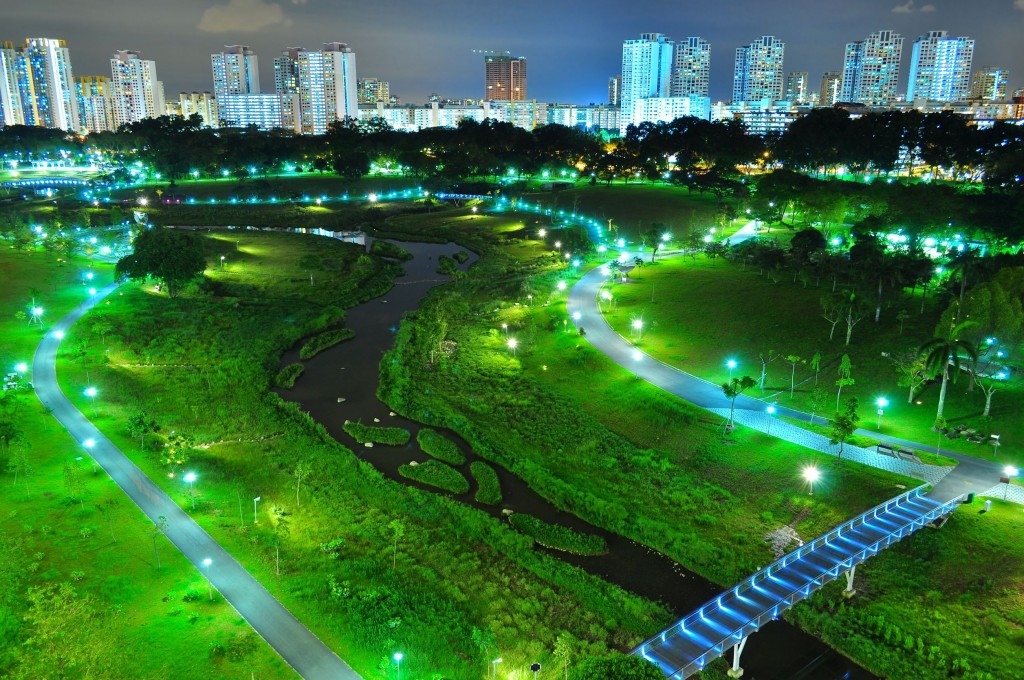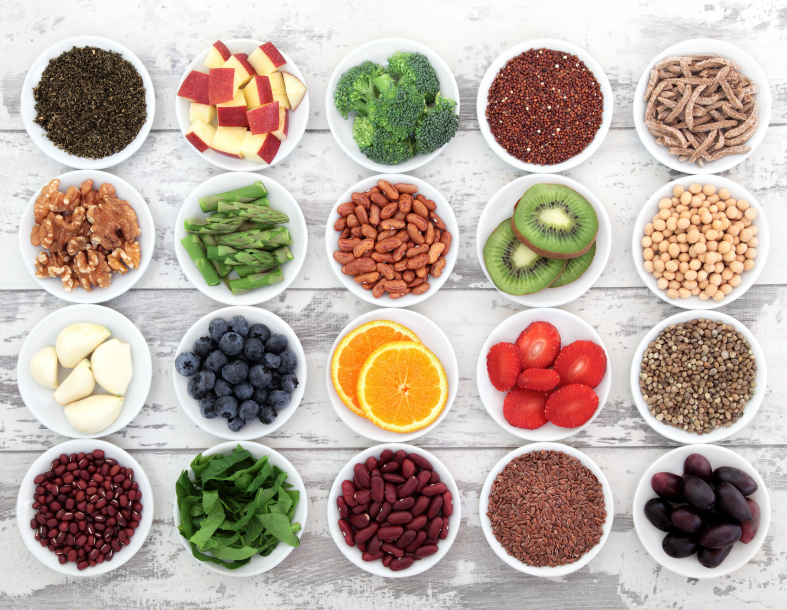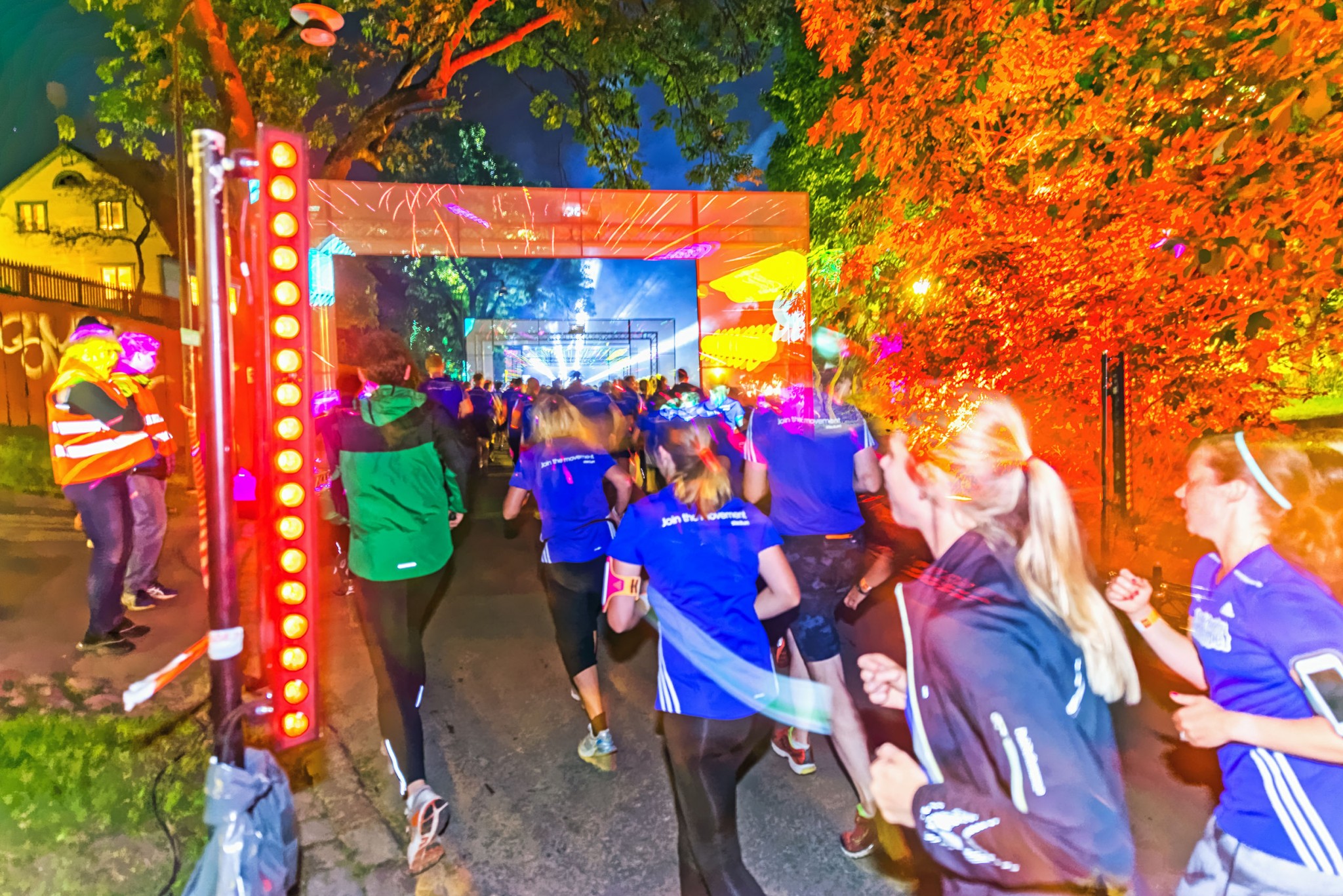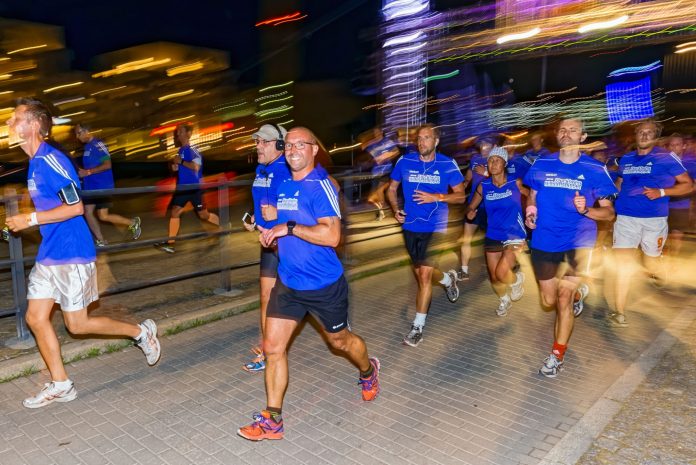If you’ve never participated in a night race before, it may be easy to dismiss night racing as little more than “just like racing in the morning, but later in the day”. True, and not true. Here are three tips to help ensure your first night race experience to be a good one.
#1 Run at night (duh)

To some, it sounds like a complete no-brainer, while to others, it sounds like unnecessary hassle.
In the darkness of the night, your environment is different, and your senses and perception shift accordingly. Get used to these changes in the comfort of a training run so on race day, you’ll be cruising. Also, our energy levels change over the course of the day, and you may find yourself struggling to hit your 10K paces that feel easy in the early morning. Conversely, you may be pleasantly surprised to discover that your 5K splits are pretty remarkable once the sun’s gone down. Point is, you’ll never know unless you’ve been running at night.
When runners hear the racing wisdom “don’t try anything new on race day”, we tend to think about habits within our scope of control, such as what clothes to wear, or re-fuelling and hydration strategies. However it also means rehearsing your race several times in anticipated racing conditions, including the time of day, and weather conditions if possible. If we can contemplate familiarisation runs to give us an advantage on race day, surely the benefit of practising at night is obvious.
#2 Modify your meals accordingly

Most of us tend to eat our largest meal of the day at dinnertime, but if you’re running a night race, chances are, you’ll want to avoid a belly full of food that may come back up mid-race.
Start your day with a solid and balanced meal at breakfast, to keep your energy levels up and glycogen levels topped off. It will also help keep you full for longer.
Reduce the size of your meals as the day progresses. Choose foods that are easy to digest, and stick to familiar foods.
Your final pre-race meal should be the same, no matter the time of the day. If you’re used to banana and kaya toast 90 minutes before a morning race, that’s what you’ll be eating before a night race. It may feel strange eating “breakfast” at night, but if you’ve been practising your nutrition and training runs at night, this shouldn’t be a shock to your system.
#3 Manage your pace

You know how it is – you toe the starting line of a race, saying “I will pace myself”. But with the buzz of the crowds and the music pumping, you’ve got adrenaline is coursing through your veins
You’d have noticed during your night training runs that running in the dark feels more difficult. Your perception is distorted by optic flow; we gauge our speed of movement in relation to the distances of objects around us. During the daytime, we look into the distance but at night, we only have closer objects to use for reference, resulting in a faster optic flow.
This leads to two outcomes, neither of which is ideal – firstly, you may feel as if you’re moving faster than you really are (sorry), and secondly, the feeling is convincingly real because a faster optic flow leads to greater perceived effort (really sorry).
To avoid crossing the finish line shocked by a poorer-than-usual performance, it’s more crucial than ever to pace yourself at the start of a race, especially for long distances where running by effort is part of the strategy, and hitting the wall is a great possibility. Start off reasonably and save the energy for a strong finish.


